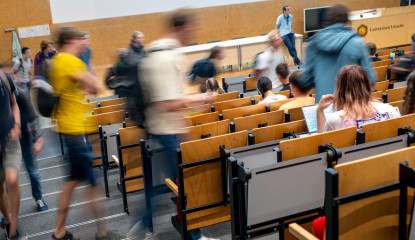Universities: ‘A blow to our students and staff’
Topical

Contact

Solid cuts to education and research in general agreement
Today, the coalition-forming parties presented their general agreement. The cuts to education, research and innovation came as a major shock to universities. These plans will damage the future of young people and the Netherlands. Jouke de Vries, acting president of Universities of the Netherlands: ‘The cuts to education and science are a blow to our students and staff who are already under enormous pressure. Together with the sharp intervention in the international nature of universities, these cuts are harming our ability to provide quality education and carry out research. This does not match the coalition-forming parties’ ambition to strengthen the knowledge economy and earning power of the Netherlands. With these cuts, we are putting the future of our country's youth at stake.’
Contact

Cuts
The cuts in this general agreement amount to over 500 million on a structural basis. Among other things, the coalition-forming parties are structurally cutting 215 million from the higher education and science sector plans. This puts the positions of 1,200 academics at risk, even though they are desperately needed to reduce the demonstrably high workload and maintain the current standard of education and research. They are also cutting the research and science fund by a total of 1.1 billion and eliminating billions for innovation by scrapping the National Growth Fund.
Since the statutory tuition fees for long-term students will increase by €3,000 a year, our students will be facing considerably more pressure. This can raise the threshold for starting and continuing a degree programme, especially for young people from low-income families.
These cuts will have far-reaching consequences for the Netherlands: overburdened lecturers, less time and freedom for students and researchers and a deterioration of the Dutch knowledge economy.
International position under pressure
The coalition-forming parties want universities to offer far fewer Bachelor’s courses in English and increase requirements for knowledge workers. ‘These measures are destroying the international character of higher education. This will have major implications for the availability of talent for academia and the labour market. On 8 February, the universities themselves had already published a robust package of measures. This shows that we can manage a sustainable balance of international students ourselves and retain the added value for the Netherlands’, de Vries said.
Many of the topics in the general agreement have yet to be fleshed out. This is what the universities will discuss with the new Minister.


